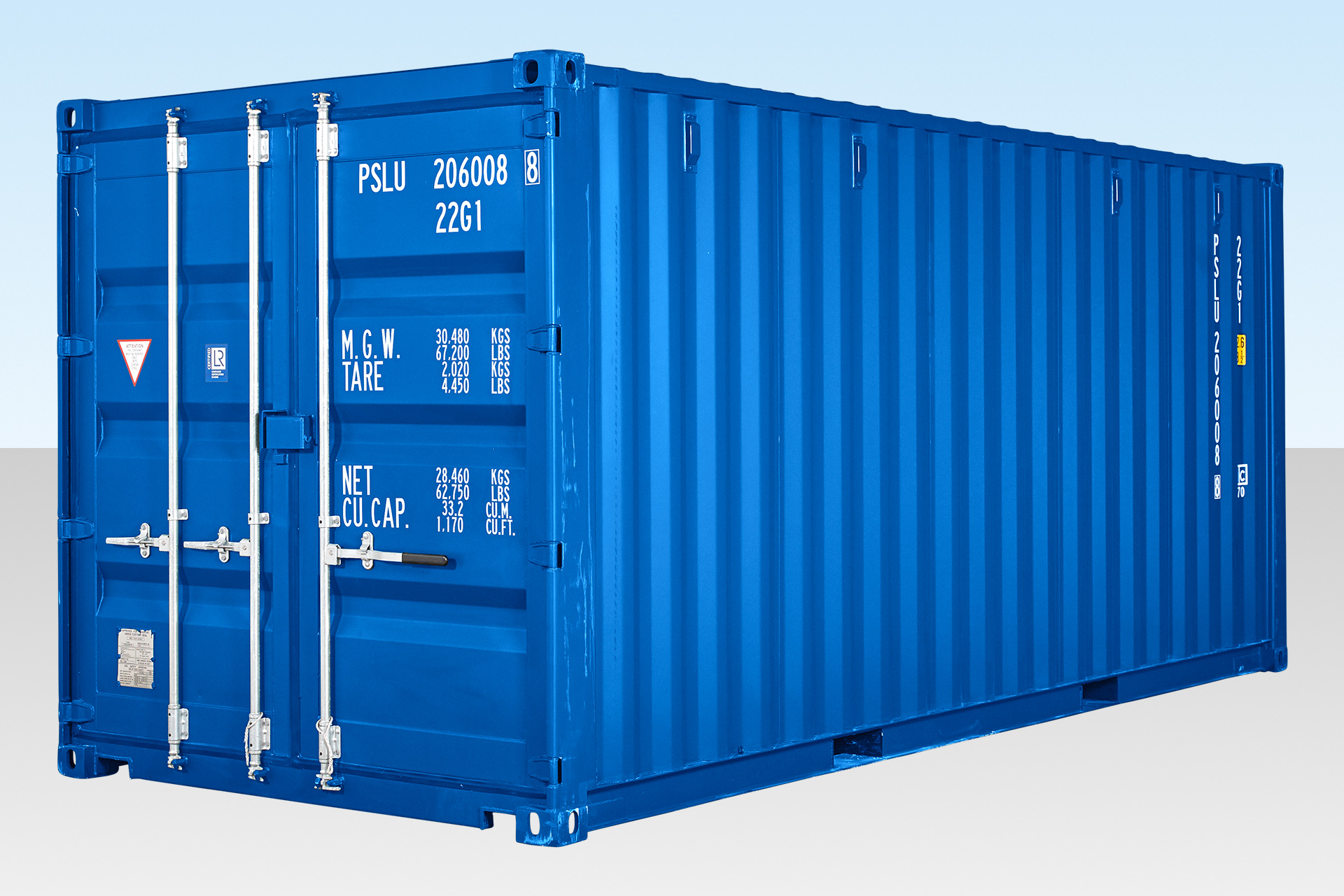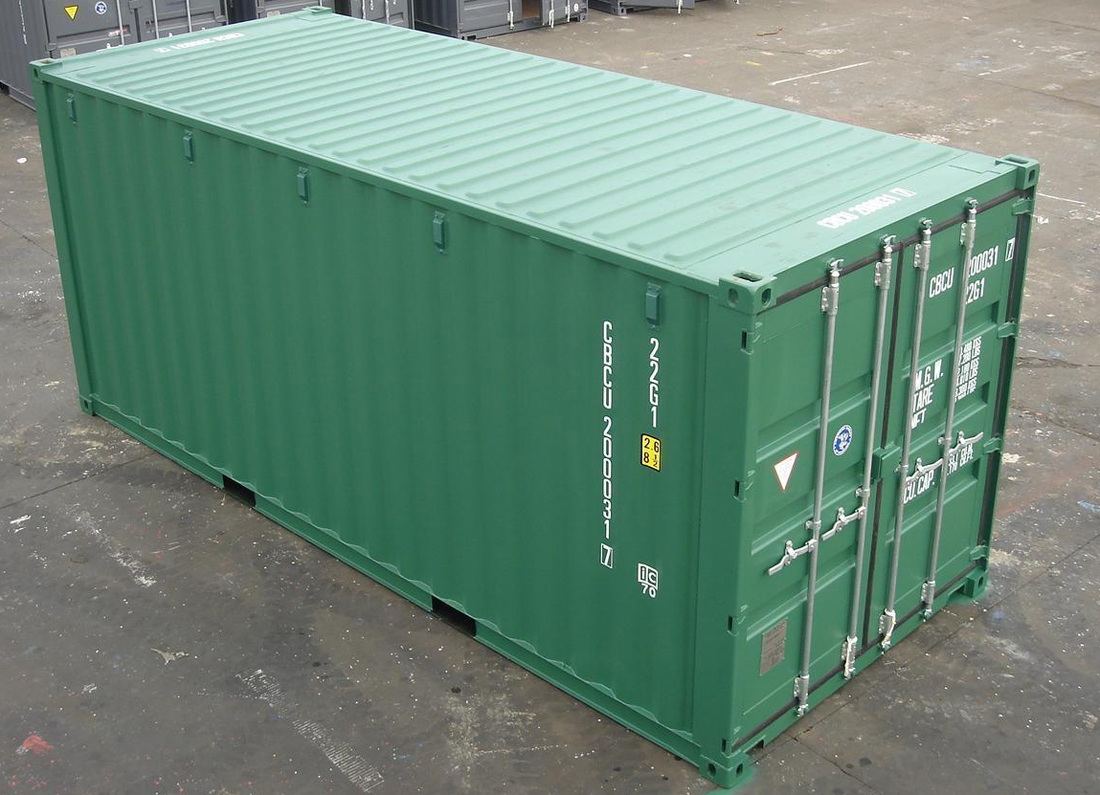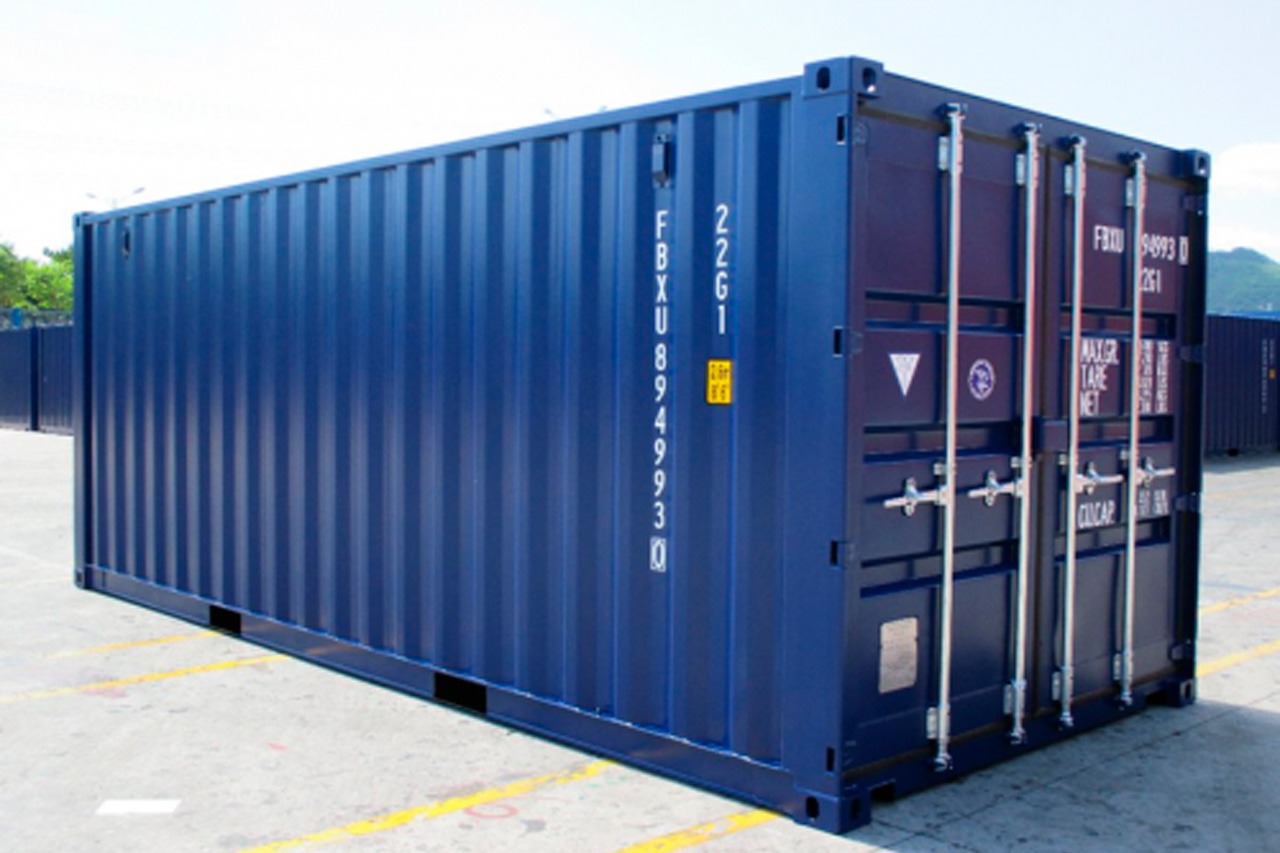Container Trucks For Sale: Your Ultimate Guide to Acquiring the Backbone of Global Logistics pickup.truckstrend.com
Introduction
In the intricate dance of global commerce, where goods traverse oceans and continents, the container truck stands as an indispensable workhorse, the final link in the supply chain that brings products from ports to warehouses, and ultimately, to consumers. These powerful vehicles, comprising a heavy-duty tractor unit and a specialized chassis designed to carry intermodal containers, are the unsung heroes of modern logistics. For businesses involved in shipping, logistics, manufacturing, or distribution, acquiring the right container truck isn’t just a purchase; it’s a strategic investment that dictates operational efficiency, delivery timelines, and ultimately, profitability.
Container Trucks For Sale: Your Ultimate Guide to Acquiring the Backbone of Global Logistics
This comprehensive guide delves into every facet of container trucks for sale, offering insights, practical advice, and essential considerations for anyone looking to enter or expand their fleet in the highly competitive world of freight transportation. Whether you’re a seasoned logistics manager or a budding entrepreneur, understanding the nuances of these vital assets is paramount to making an informed decision.
Understanding Container Trucks: Types and Configurations
At its core, a container truck is a specialized heavy-duty vehicle designed to transport standardized shipping containers. This typically involves two main components: the tractor unit (the truck itself) and the container chassis (the trailer designed to hold the container). The variety within these components allows for immense flexibility to meet diverse operational needs.
Tractor Unit Configurations:
- Day Cabs vs. Sleeper Cabs: Day cabs are smaller, without sleeping quarters, ideal for local or regional hauls where drivers return home daily. Sleeper cabs, equipped with bunks and amenities, are designed for long-haul routes, allowing drivers to rest on extended journeys.
- Engine & Drivetrain: Engine size (horsepower and torque) and transmission type (manual or automatic) are critical for handling varying loads and terrains. Larger engines and robust transmissions are necessary for heavy loads and challenging inclines.
- Axle Configurations: Common configurations include 4×2 (single drive axle) for lighter loads or flat terrain, and 6×2 or 6×4 (tandem drive axles) for increased traction and Gross Vehicle Weight Rating (GVWR) capacity, essential for heavier containers and adverse conditions.

Container Chassis/Trailer Types:
- Standard Chassis: Most common, designed to carry 20-foot, 40-foot, or 45-foot containers. Some are fixed-length, while others are "sliders" or "extendable" to accommodate different container sizes.
- Gooseneck Chassis: Features a dropped deck at the front, allowing for the transport of "high cube" containers (taller than standard containers) while remaining within legal height limits.
- Tri-Axle/Quad-Axle Chassis: Equipped with additional axles to distribute heavier loads, allowing for higher weight capacities, particularly useful for dense cargo or adherence to specific state weight regulations.
- Genset-Equipped Chassis: These chassis include a mounted generator set (genset) to power refrigerated containers (reefers), essential for transporting temperature-sensitive goods over long distances.

Why Buy a Container Truck? Benefits for Your Business
Investing in container trucks for sale can yield significant benefits, transforming your operational capabilities and financial outlook.

- Enhanced Operational Control: Owning your fleet gives you complete control over scheduling, routing, and delivery timelines. This autonomy allows for greater responsiveness to customer demands and market fluctuations, reducing reliance on third-party carriers.
- Cost Efficiency in the Long Run: While the initial investment is substantial, owning a fleet can be more cost-effective than consistently outsourcing transportation, especially for high-volume operations. You eliminate third-party markups and can optimize fuel consumption and maintenance.
- Increased Flexibility and Capacity: A dedicated fleet means you can scale operations up or down as needed, ensuring capacity is always available, even during peak seasons or when external transport is scarce.
- Improved Reliability and Service Quality: Your own drivers and well-maintained trucks ensure consistent service quality. You can set your own standards for punctuality, cargo care, and customer interaction, enhancing your brand reputation.
- Asset Appreciation and Equity: A well-maintained container truck is a tangible asset that can appreciate over time or hold significant resale value, building equity for your business.
- Specialized Transport Capabilities: If your business deals with specific types of cargo (e.g., hazardous materials, oversized loads, refrigerated goods), owning specialized trucks and chassis ensures you have the right equipment for the job, adhering to all safety and regulatory requirements.
Key Considerations When Buying a Container Truck
The decision to purchase a container truck is complex, requiring careful evaluation of several critical factors.
- New vs. Used:
- New Trucks: Offer the latest technology, better fuel efficiency, full warranties, and fewer immediate maintenance concerns. However, they come with a higher upfront cost and rapid depreciation.
- Used Trucks: Significantly lower initial cost, slower depreciation, and often a wider selection. The trade-off includes potentially higher maintenance costs, no warranty (or limited), and unknown operational history. A thorough inspection is crucial.
- Budget and Financing: Beyond the purchase price, consider the total cost of ownership (TCO), including fuel, insurance, maintenance, repairs, tires, and regulatory fees. Explore financing options such as traditional bank loans, equipment leases, or manufacturer financing programs.
- Load Capacity and GVWR: Ensure the truck’s Gross Vehicle Weight Rating (GVWR) and Gross Combined Weight Rating (GCWR) are sufficient for the maximum weight of the containers you intend to haul, including the container’s tare weight and cargo. Overloading leads to safety hazards, fines, and premature wear.
- Engine and Transmission: Match the engine’s horsepower and torque to your typical routes (flat highways vs. mountainous terrain) and load weights. Consider the fuel efficiency of different engine types. Automatic transmissions are increasingly popular for ease of driving and fuel economy, while manuals offer more control for experienced drivers.
- Maintenance History (for Used Trucks): Demand comprehensive service records, accident reports, and repair logs. This documentation provides insights into the truck’s past life and potential future issues.
- Condition of Chassis/Trailer: Inspect the frame for cracks or rust, check the tires for wear, ensure brakes are in good condition, and verify all lights and electrical systems are functional. For reefer chassis, inspect the genset’s maintenance history.
- Compliance and Regulations: Be aware of federal and state regulations, including emissions standards (e.g., EPA 2010, CARB compliance), DOT inspections, weight limits, and licensing requirements. Non-compliance can lead to hefty fines and operational shutdowns.
- After-Sales Support and Parts Availability: Choose brands with readily available parts and a strong network of service centers to minimize downtime during repairs.
- Driver Comfort and Features: A comfortable driver is a productive and safe driver. Consider features like ergonomic seating, climate control, modern infotainment systems, and advanced safety features (e.g., lane departure warning, collision mitigation).
Where to Find Container Trucks For Sale
The market for container trucks for sale is diverse, offering various avenues to find the right vehicle for your needs.
- Authorized Dealerships: Both new and used truck dealerships offer a wide selection, financing options, warranties, and after-sales service. They often have certified pre-owned programs.
- Online Marketplaces: Websites like Truckpaper.com, CommercialTruckTrader.com, and RitchieSpecs.com specialize in heavy equipment sales, offering vast inventories from dealers and private sellers across the country.
- Auctions: Public, online, or liquidation auctions can offer competitive prices, especially for fleet divestitures or repossessed vehicles. However, "as-is" sales mean higher risk, requiring meticulous pre-bidding inspection.
- Private Sellers: Individual owners or smaller businesses selling off a truck can sometimes offer lower prices, but typically without warranties or financing options. Due diligence is paramount.
- Fleet Sales/Rental Companies: Large logistics companies or truck rental agencies often sell off their well-maintained vehicles after a few years of service, offering good value for used trucks with known histories.
The Buying Process: A Step-by-Step Guide
Navigating the acquisition of container trucks for sale requires a systematic approach to ensure you make the best decision.
- Define Your Needs: Clearly outline your operational requirements: what types of containers will you haul? What are your typical routes? What’s your budget? How many trucks do you need?
- Research and Shortlist: Based on your needs, research different makes, models, and configurations. Compare specifications, fuel efficiency ratings, reliability reports, and estimated maintenance costs. Create a shortlist of potential candidates.
- Thorough Inspection: For any used truck, a professional, independent pre-purchase inspection by a qualified heavy-duty mechanic is non-negotiable. This inspection should cover the engine, transmission, brakes, suspension, frame, tires, electrical system, and all major components. For chassis, inspect the frame, twist locks, lights, and tires.
- Test Drive: Take the truck for an extended test drive, ideally under conditions similar to your typical operations. Pay attention to engine performance, transmission shifts, braking, steering, and any unusual noises or vibrations.
- Negotiation: Once you’ve identified a suitable truck, negotiate the price. Be prepared to walk away if the terms aren’t favorable. Consider asking for inclusions like fresh service, new tires, or minor repairs.
- Financing and Paperwork: Secure your financing. Review all purchase agreements, titles, and registration documents carefully. Ensure all warranties (if applicable) are clearly stated.
- Insurance: Obtain comprehensive commercial truck insurance before taking possession of the vehicle. This is a legal requirement and protects your investment.
Maintaining Your Investment: Tips for Longevity
A container truck is a significant investment, and its longevity directly impacts your profitability. Proactive maintenance is key.
- Adhere to Service Schedules: Follow the manufacturer’s recommended maintenance schedule for oil changes, filter replacements, fluid checks, and major service intervals.
- Tire Management: Regular tire pressure checks, rotations, and alignments extend tire life, improve fuel efficiency, and enhance safety.
- Brake System Checks: Regularly inspect brake pads, drums, lines, and air systems. Properly functioning brakes are critical for safety.
- Fluid Analysis: Periodically analyze engine oil, transmission fluid, and coolant to detect potential issues early.
- Driver Training: Train your drivers on proper vehicle operation, defensive driving techniques, and daily pre-trip/post-trip inspections to identify problems early.
- Keep Detailed Records: Maintain meticulous records of all maintenance, repairs, and inspections. This documentation is invaluable for troubleshooting, warranty claims, and future resale.
Challenges and Solutions in the Container Truck Market
While lucrative, the container trucking industry presents its share of challenges.
- High Upfront Costs:
- Solution: Explore diverse financing options, consider well-inspected used trucks, and factor in the long-term ROI.
- Fuel Price Volatility:
- Solution: Invest in fuel-efficient trucks, optimize routes, implement driver training for efficient driving habits, and consider fuel hedging strategies.
- Driver Shortage:
- Solution: Offer competitive wages, benefits, and positive working conditions. Invest in driver retention programs and comfortable, modern trucks.
- Regulatory Changes:
- Solution: Stay informed about evolving emissions standards, safety regulations, and licensing requirements. Partner with industry associations and legal counsel.
- Maintenance Expenses and Downtime:
- Solution: Prioritize preventative maintenance, maintain a stock of common spare parts, and establish relationships with reliable service providers.
Price Table: Illustrative Container Truck Pricing
Please note: Prices for container trucks for sale vary dramatically based on age, mileage, condition, make, model, specifications, and market demand. The table below provides illustrative price ranges for common configurations.
| Type of Truck (Condition) | Year (if Used) | Make/Model (Example) | Mileage (if Used) | Key Features | Estimated Price Range (USD) |
|---|---|---|---|---|---|
| New Day Cab | N/A | Freightliner Cascadia | N/A | 4×2 or 6×2, 450-500 HP, Automatic Transmission, Standard Warranty, Modern Safety Features | $130,000 – $180,000+ |
| New Sleeper Cab | N/A | Kenworth T680 | N/A | 6×4, 500-550 HP, Automatic Transmission, Large Sleeper, Advanced Aerodynamics, Full Warranty | $160,000 – $220,000+ |
| Used Day Cab | 2018-2021 | Volvo VNL | 300,000-500,000 | 6×2, 425-475 HP, Automated Manual Transmission, Well-maintained, Pre-emission standard (potentially) | $50,000 – $90,000 |
| Used Sleeper Cab | 2017-2020 | Peterbilt 579 | 400,000-700,000 | 6×4, 475-525 HP, Automatic Transmission, Mid-roof Sleeper, Good condition, Recent major service | $70,000 – $120,000 |
| New Standard Chassis | N/A | Stoughton, CIMC | N/A | 40ft/45ft Extendable, Air Ride Suspension, LED Lights, New Tires | $25,000 – $40,000 |
| Used Standard Chassis | 2010-2015 | Wabash, Great Dane | N/A | 40ft Fixed, Spring Suspension, Used Tires (good tread), Minor Rust, Functional Lights | $8,000 – $18,000 |
| New Genset Chassis | N/A | Hyundai, Chassis King | N/A | 40ft/45ft Extendable, Thermo King/Carrier Genset, ABS Brakes, Air Ride | $60,000 – $85,000+ |
| Used Genset Chassis | 2012-2016 | Cheetah, Pitts | N/A | 40ft Fixed, Used Genset (serviced), Good Frame Condition, Minor Wear | $30,000 – $55,000 |
Prices are highly variable and subject to market conditions, seller, and specific features. This table is for general informational purposes only.
Frequently Asked Questions (FAQ)
Q1: What is the average lifespan of a container truck?
A1: With proper maintenance, a well-built container truck (tractor unit) can last for 1,000,000 miles or more, often serving for 10-15 years. Chassis tend to have an even longer lifespan, often 20+ years, as they have fewer moving parts.
Q2: Do I need a special license to drive a container truck?
A2: Yes, in the United States and Canada, you need a Class A Commercial Driver’s License (CDL) to operate a combination vehicle with a Gross Combination Weight Rating (GCWR) of 26,001 pounds or more, which includes most container trucks. Additional endorsements (e.g., hazmat, air brakes) may be required depending on the cargo and vehicle configuration.
Q3: What’s the difference between a container chassis and a container trailer?
A3: The terms are often used interchangeably, but "chassis" specifically refers to the skeletal frame designed to carry intermodal containers. While technically a type of trailer, "trailer" is a broader term encompassing various types of towed units, whereas "chassis" is specific to container transport.
Q4: How often should I service my container truck?
A4: Service intervals depend on the manufacturer’s recommendations, mileage, and operating conditions. Generally, oil and filter changes are needed every 15,000-25,000 miles, with more comprehensive inspections and services annually or every 50,000-100,000 miles. Always follow the manufacturer’s maintenance schedule.
Q5: Can I finance a used container truck?
A5: Yes, financing for used container trucks is widely available through banks, credit unions, and specialized equipment lenders. Loan terms and interest rates will depend on the truck’s age, your creditworthiness, and the loan amount.
Q6: What are the most reliable brands for container trucks?
A6: Top brands known for reliability and durability in the trucking industry include Freightliner, Kenworth, Peterbilt, Volvo, Mack, and International for tractor units. For chassis, leading manufacturers include CIMC, Stoughton, Wabash National, Cheetah, and Chassis King. Reliability can also depend on specific models and how well they’ve been maintained.
Conclusion
Acquiring container trucks for sale is a pivotal decision that can significantly shape the trajectory of your business. These powerful machines are more than just vehicles; they are critical components of a global supply chain, enabling the seamless movement of goods across vast distances. By understanding the various types, meticulously evaluating your options, conducting thorough inspections, and committing to proactive maintenance, you can ensure your investment yields maximum returns for years to come. The right container truck empowers your operations, enhances your competitive edge, and solidifies your position as a reliable link in the essential world of logistics. Choose wisely, and drive your business forward.